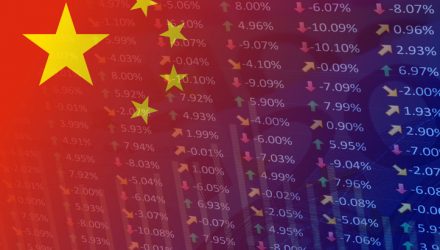Index-based ETFs mirror the moves of their underlying holdings. Consequently, if China’s government extends the hiatus on its financial markets, investors using ETFs to access this emerging market will have to keep in mind the potential for widening tracking divergences.
Investors who invest in international stock ETFs shouldn’t be a stranger to tracking errors as U.S. stock market hours do not perfectly overlap with markets in Europe or Asia, so ETF prices will be different from the previous closing net asset value of the underlying holdings.
However, China ETF investors should keep in mind that the underlying markets are closed for the holidays and the hiatus has been extended due to the coronavirus outbreak. The Shanghai and Shenzhen stock exchanges said trading will resume February 3, and Shanghai authorities separately advised companies shouldn’t start work until at least February 9, Bloomberg reports.
Investors interested in China ETFs may find that the ETF’s price could continue to fluctuate beyond the net asset value of the underlying mainland Chinese markets. The Xtrackers Harvest CSI 300 China A-Shares ETF (NYSEArca: ASHR), the largest China A-shares related ETF, was trading at a 1.3% premium to its net asset value as of January 28.
Moreover, if the coronavirus selling gets even worse, potential investors should be aware that once Chinese markets do open, stocks listed on Shanghai and Shenzhen have a daily trading limit of positive or negative 10%.
Hong Kong’s financial markets are due to reopen on Wednesday.
China ETF investors should also be aware that non-A-shares funds that may track H-shares or Chinese company on Hong Kong exchanges. The iShares MSCI China ETF (NASDAQ: MCHI), which includes exposure to companies incorporated in the People’s Republic of China that are listed in Hong Kong, was trading at a 2.6% discount to its NAV.
For more information on the Chinese markets, visit our China category.

